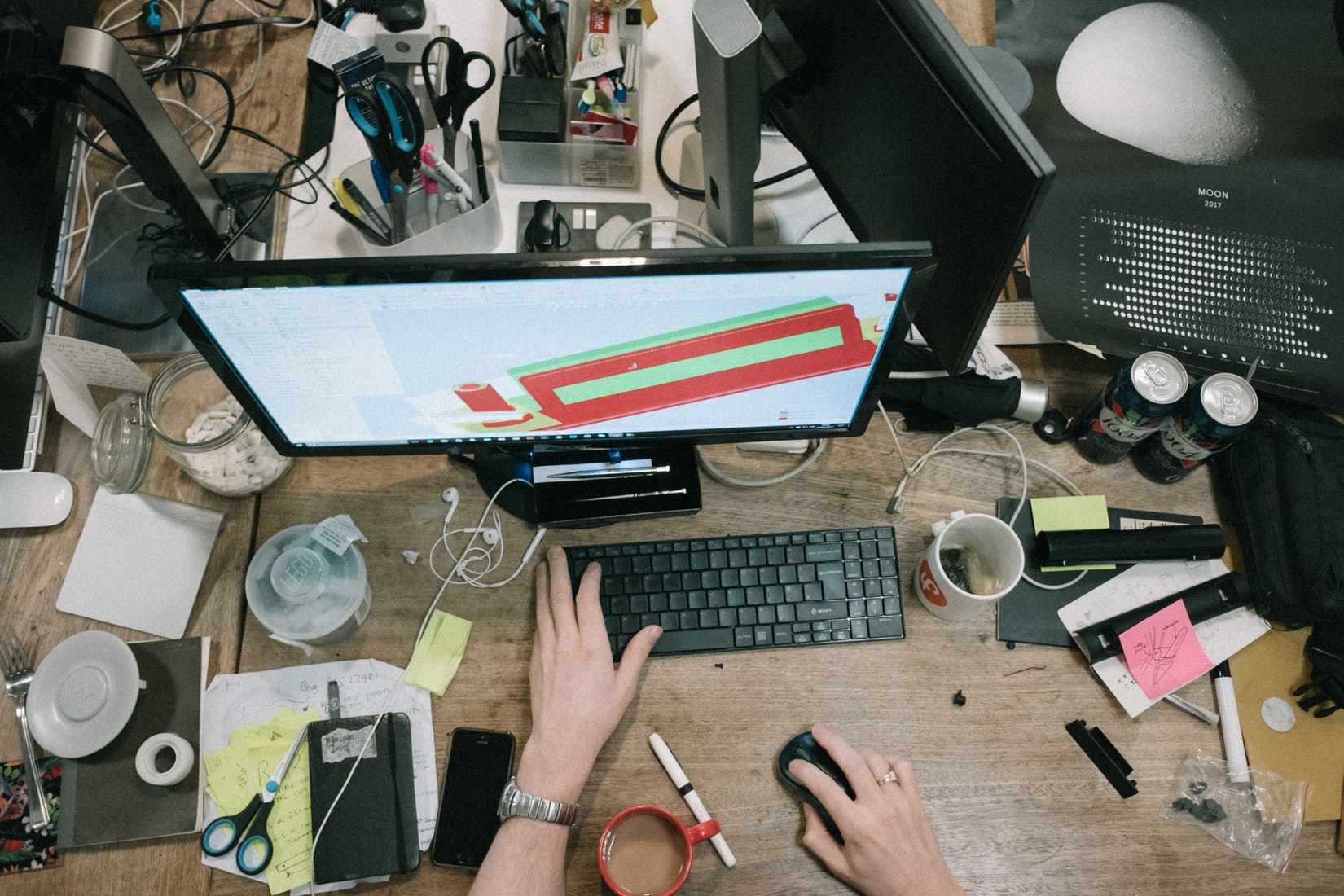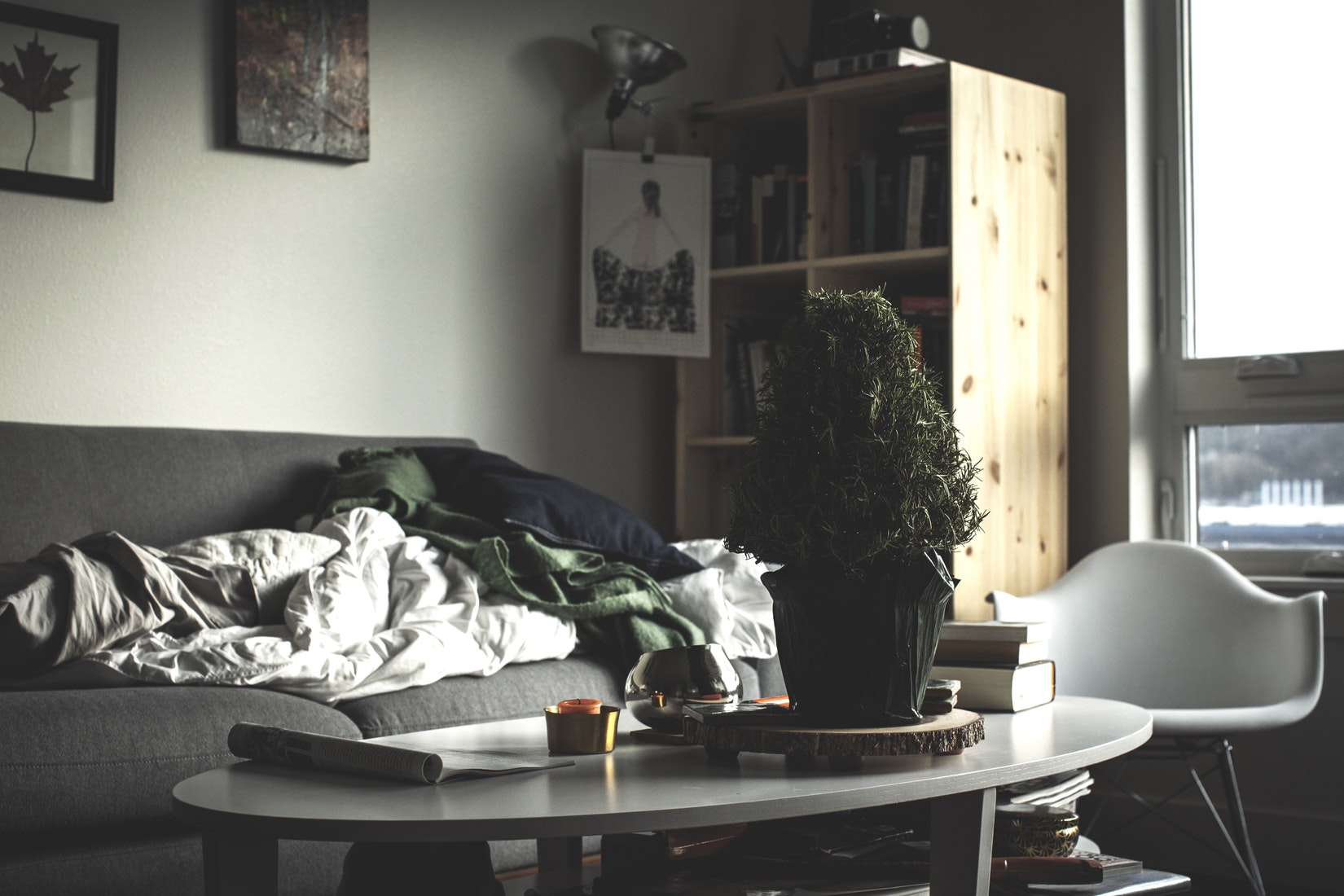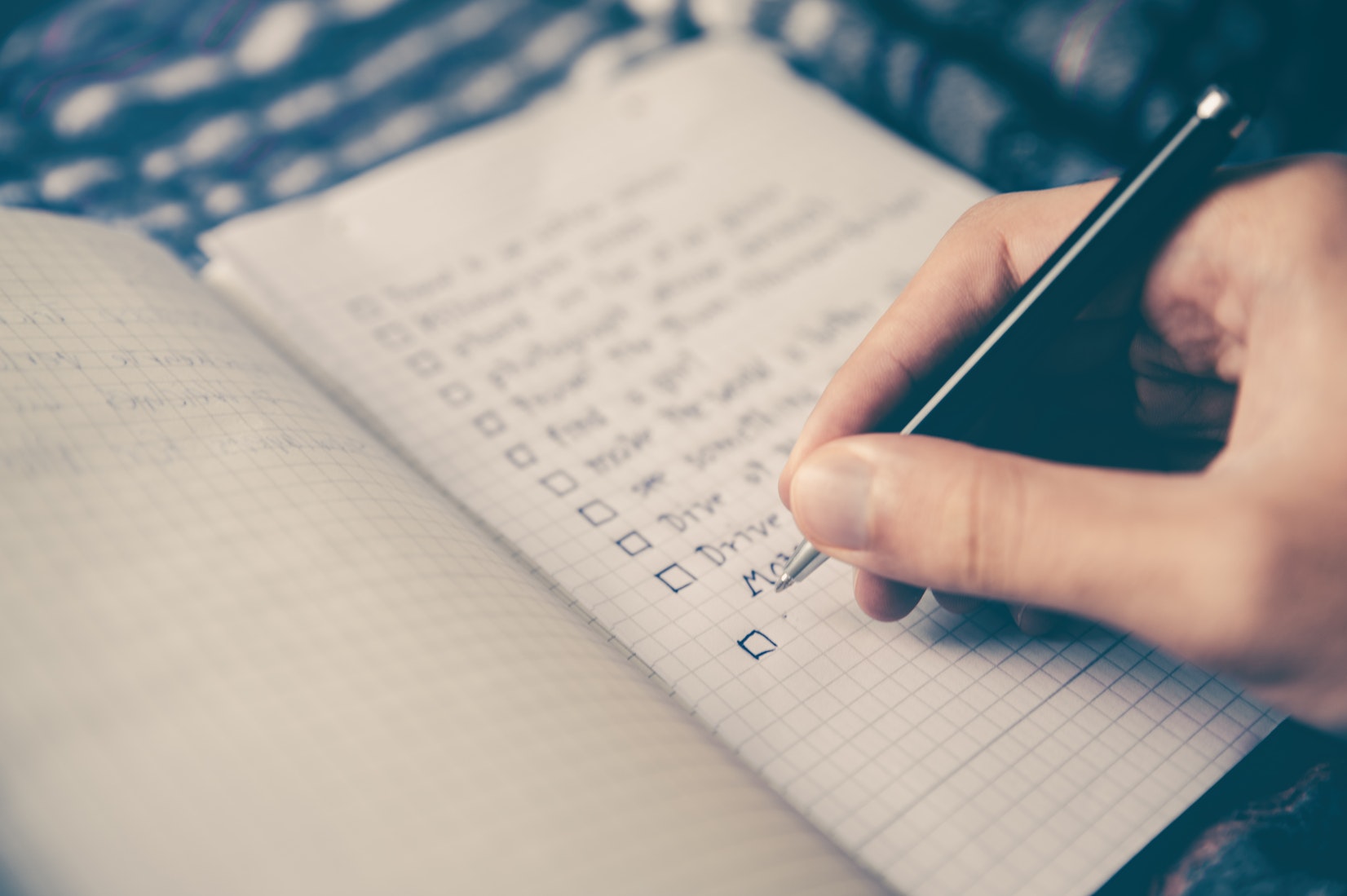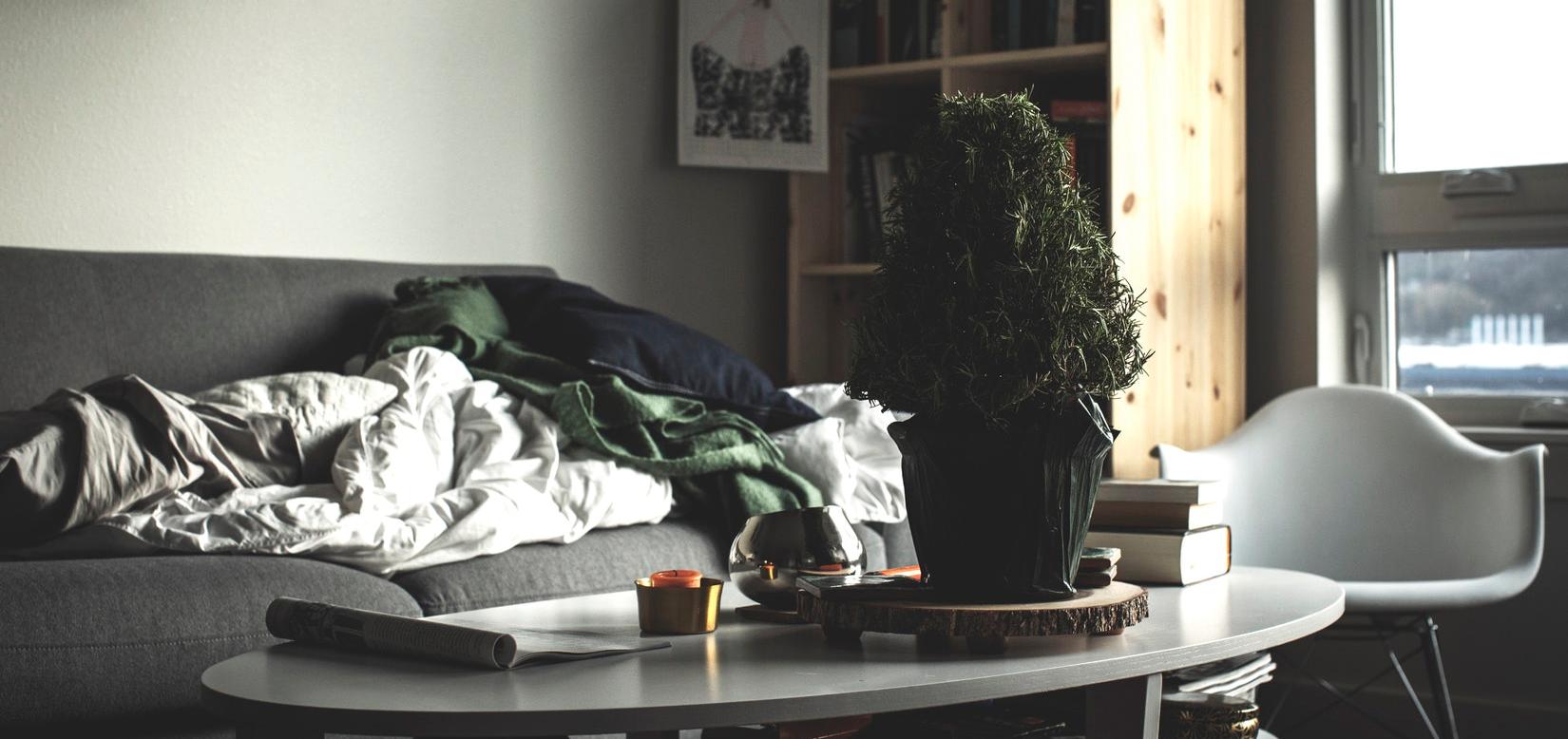A cluttered room is a cluttered mind. If there’s one place in your house that you should start cleaning up first, it’s got to be your bedroom. It’s your personal place of selfcare – it’s where you sleep, recharge, and do a whole lot of thinking.
Many studies have suggested a link between clutter and depression, and it’s no wonder why. Imagine going back home to a room that’s messy, crammed and dirty, after a long hard day. You’ll definitely get stressed up in no time.
Surrounding yourself in a peaceful, tidy bedroom is no doubt the first baby step you can take to achieve mental wellness in your home. In this article, we introduce our ultimate 3-day declutter challenge that’s definitely achievable if you set your mind to it. Read on if you’re ready for the challenge!
Day 1: Little Clutter

Take the first day to clean up and organise small items that you can easily see in your bedroom. Trust us, once you remove noticeable clutter from your sight, your room will look a whole lot cleaner and less claustrophobic.
1. Clean your desk
Start with your desk. Remove all the unnecessarily clutter, leaving only the things that add value to your life. This includes ornaments, books, papers and other novelty items. Don’t forget to wipe your desk clean to remove bacteria and dirt. Once you’ve cleaned your desk, you can move on to other areas in the room.
2. Toss expired personal & beauty products
Look through your dresser and bathroom to throw out items that are old or expired. Sometimes, you may find empty make-up cases, expired beauty products or mouldy brushes. Yes, this also means jewellery and accessories. If it doesn’t break your heart to part with them, toss them all away!
3. Check your bookshelves
Check your tables and shelves for worn-out books or piles of paper and receipts that are collecting dust. Sometimes, you may hesitate to throw out books and stationary items that are still in good condition. Here’s the rule of thumb – if you know you won’t have use for it anytime soon, give them away or store them neatly in a cabinet.
Day 2: Big Clutter

Day 2 is all about tackling the big guys. Once you’ve sorted out the little clutter, turn your attention to the things that really take up a lot of space in your room. Removing those unwanted mammoths will not just take some weight off your room, it’ll take some off your mind too!
1. Clear out your wardrobe
Take all your clothes out, leaving your wardrobe empty. Then, look through your clothes to throw out the ones that are old and worn out. Next, look through your remaining pile of items and sieve out the ones that you know you won’t wear in the near-future. You should only be left with the clothes that you really need or enjoy wearing. Fold and sort them neatly in the wardrobe.
2. Remove some furniture
It’s time to take decluttering up to the next level and remove chunky furniture from your room! This might be the hardest part because it can mean throwing out desks, tables, paintings and any other unnecessary big items that take up space. You should be able to identify the redundant furniture once you’ve cleared through the little clutter. Freeing up your room from impractical furniture can also make your room look bigger and cleaner.
3. Store the rest
By now, all the items left in your room should only be the ones that are necessary, practical, meaningful or valuable. You’ll find that there are still some items that you may not be using so soon, even if they add value to your life. The final physical task is to store these remaining items neatly into boxes of similar design. You can get different sized boxes too, but having uniform designs can help to tone down visual noise.
Day 3: Mental Clutter

Many people tend to focus only on the physical aspect of decluttering but may neglect the mental part. Mental decluttering is just as important, if not more, and its benefits go a long way in keeping you stress-free and productive.
1. Organise your data
Whether it’s your computer, phone or tablet, clean up data in your device and delete the rest. Toss old data into the trash or create an “archive” folder for it if you’re afraid to lose data. Some examples are below:
- Organise your email inbox and sort them into respective folders
- Unsubscribe yourself from newsletters that you don’t read
- Delete apps that you don’t use, as well as unwanted photos and videos
- Clean up your desktop icons and folders
2. Get familiar with checklists
Next, sort out your current tasks into checklists and timetables so you can manage your workload against deadlines. Seeing your progress can also make you feel more accomplished, which can help you cope with heavy deliverables. There are free goal-tracker apps such as HabitBull and Google Goals that can keep you on track of your progress and help you organise your tasks. This organisational tactic is useful for both work-related and personal tasks.
3. Learn to say no
Here’s the difficult part. Multi-tasking or committing to too many activities can also affect your mental wellness. You don’t have to say yes to every social activity with your friends, and you don’t have to constantly text or check your phone. We’re not saying you should live like a social hermit. But putting some restriction on activities that you don’t enjoy or ones that don’t add value to your personal growth will help you to free up more time to develop your passion projects.
In the midst of decluttering and organising, remember to give your body the nutrition it deserves. Supplement your daily routine with sufficient magnesium, vitamin B, omega 3 and other antioxidants, vitamins and minerals. It can help to reduce stress, and improve focus and mental energy levels. We’ve got a wide range of supplements and healthy snacks on our specially curated wellness Marketplace just for you – click here to start shopping today!







